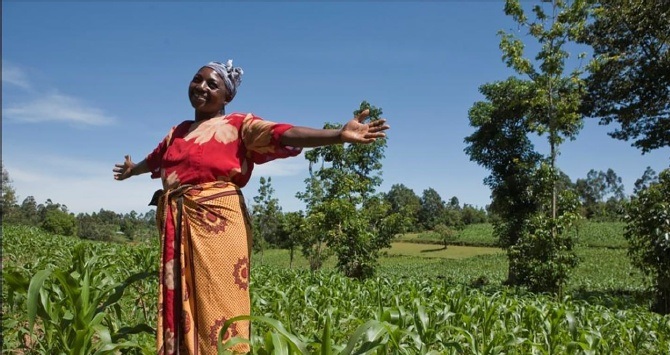MSc African Development students, Jon Rothwell and Faith Mwachinga, discuss the need for a robust policy framework that captures the efficiency gains and commercial advantages attributed to Africa’s digital transformation.
The rapid digitization of African economies has resulted in increased optimism around the transformative nature of ICTs and their ability to enable developing countries to successfully integrate into the global economy. However, whether these ICTs are developmental or not hinges on who captures the value added and how much of this value is reinvested within African economies to create deeper and more meaningful integrations within the global context. In the case of Kenya, ICTs have reshaped African capitalism at the bottom of the pyramid (BoP) by mainly reducing transaction costs and marginally increasing smallholders’ participation in a wider local market pool, particularly in agriculture. However, this change represents largely superficial gains consistent with thintegration. Similarly, at the country level, the growth of Mobile Money Operators (MMOs) and ICTs has opened up new opportunities for taxation, investment and employment. These developmental effects are significantly weakened by the limited ability of the state to sufficiently capture the value attained and utilise it to expand the economy into higher value production activities by capitalising on knowledge rents. Effective value capture can only occur within a robust policy framework that utilises ICTs as a tool rather than a replacement, to enhance the transformation of the fundamental aspects of African political economy.

The MMO and ICT sector firms in general have been largely beneficial for Kenya’s private sector. By promoting financial inclusion and capturing emerging bottom of the pyramid ICT markets, firms like Safaricom, Airtel and Equitel have moved from just mobile phone service provision to introducing mobile money systems that bring in greater profits and expansion. The rise of ICT and MMO services has also corresponded with greater formal sector employment, economic deepening, and linkages with other supporting sectors of the domestic economy such as construction, infrastructure and energy. The Kenyan government gains significant revenues through the 30% corporation tax levy they impose on MMOs. They earned $205 million in taxes from Safaricom in 2017, thus indicating the substantive nature of the total contribution of MMO companies to tax revenue. Consequently, digitisation may foster greater domestic resource mobilisation, which can be used for further productive investments, or to prop up public goods provision. That being said, the ownership structure of these MMOs raises questions around value capture. Although, the ICT sector accounts for 12% of Kenya’s GDP, many of these firms have western telecom MNCs as their primary shareholders, whose share of the profits are siphoned away rather than reinvested in Kenya. For instance, 40% of Safaricom is owned by Vodafone, while a further 25% is privately held, predominantly by foreign firms.
The dominance of ICTs within the agricultural sector in Kenya has equally been instrumental in enhancing the productivity of farmers. These gains have occurred largely due to a reduction of transaction costs resulting from enhanced communication and information access. In particular, a proliferation of agricultural mobile applications has played a significant role in providing extension services, increasing operational efficiency in farms as well as creating platforms linking buyers and sellers both locally and internationally. However, the majority of farmers continue to operate within localised and highly intermediated value chains. Studies have shown that mobile phone use has reinforced the role of middlemen within African agricultural value chains. These high levels of intermediation further exacerbate the power asymmetries that arise from restrictive terms of inclusion, thus limiting the benefits received by smallholder farmers. Furthermore, there is evidence that the use of ICTs among rural farmers in Kenya remains restricted by infrastructural limitations such as lack of access to electricity as well as low literacy levels. Therefore, considering that 75% of agricultural outputs in East Africa are produced by smallholder farmers, the transformational capabilities of ICT enabled knowledge economies are yet to be captured by the majority of the participants in the Kenyan economy. In addition, there have been limited efforts to utilise ICTs to move agricultural output into higher value activities such as traceable, single sourced production that would enable Kenya to enhance its position within the global economy.
The ICT enabled productive gains that have been instrumental in enhancing African capitalism have not been substantive enough to create deep developmental impact. A large share of the value added by ICTs fails to be captured by the majority of participants in African economies and can thus not be utilised in ways that would enable African states to leapfrog industrialisation and restructure their economies. ICTs have an amplifier effect and can be seen to reinforce the power asymmetries that prevent African economies from fully integrating into global value chains and benefiting from higher value production. Thus, technology can only complement policy and should not be expected to replace institutional capacity.
Contemporary heterodox scholars stress the importance of strategic industrial policy in contributing to structural transformation. In particular, policy should be utilized to ensure that the efficiency gains and commercial advantages attributed to the digital transformation are effectively captured and reinvested within the local economy. Knowledge spillovers play a key role in structural transformation and, through local content units, can be utilized to upgrade domestic firms and enforce more equitable terms from foreign firms thus shaping patterns of value capture. Complementary to this, legal restrictions limiting the repatriation of profits by Vodafone and other multi-nationals could further maximise the benefits of the MMO sector in Kenya.
This blog post is part of a series composed by Masters students on the African Development course at the London School of Economics and Political Science. They represent the views of an emerging body of critical young scholars interested in structural transformation and growth in African economies. The series will be featured over the ROAPE.net, Africa is a Country, Africa@LSE and ID@LSE blogs in the coming months.
Jon Rothwell is a Master’s student in African Development at the LSE. His interests include industrial policy, social policy, public sector management, CCTs. Faith Mwachinga is a Master’s student in African Development at the LSE. Her interests include development policy, public private partnerships and social enterprise.
The views expressed in this post are those of the author and in no way reflect those of the International Development LSE blog or the London School of Economics and Political Science.






Very interesting read, especially your emphasis that the use of ICTs in agrculture should not be seen as a ‘silver bullet’ solution but a tool to support increased agricultural productivity. Another interesting point you made was the role of ICTs in “reinforcing intermediation on agricultural value chains”. This was also a point I made in my blog on digital transformation in Nigerian agriculture https://bookieezeomah.com/2018/08/05/is-digital-transformation-in-nigerian-agriculture-a-myth-or-reality/#more-543. I agree with you that ICTs have not only perpetuated the reliance on intermediaries, but tech-savvy agro-enterpreneurs who have emerged as ‘digital intermediaries’ could potentially (not always) reinforce power asymmetries on these value chains.
I am particularly interested in the emergence of the agro-preneurs who, in my view, are a necessary consequence of the increasing disinterestedness which has birthed new markets and potentially new consumption patterns that could benefit the perennially disenfranchised smallholders. While it can be argued that this is just a new layer of exploitation, it is in the least encouraging that it is the youthful, who are leading this foray and there’s much to be said about the signs of a waning apathy to agriculture by this demographic. Of Communication technologies playing nothing but a complimentary role to extension officers (Kenya) etc. would be overstating the possibilities. Although that is exactly the situation as the Kenyan government is unable to fund these requisite services.